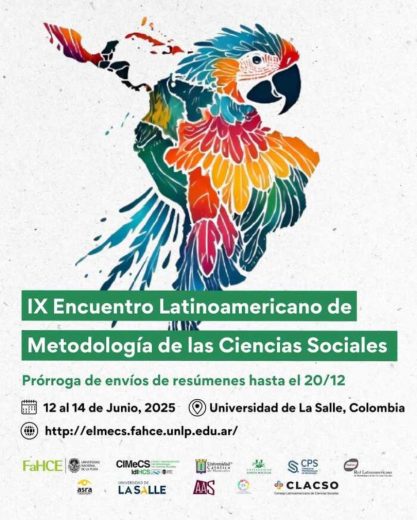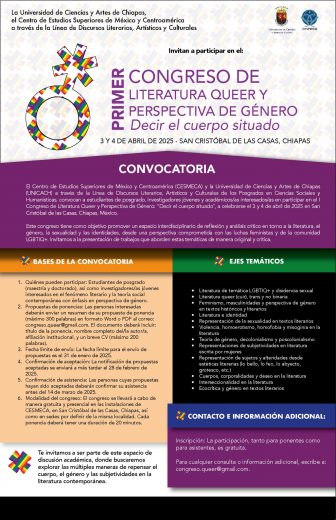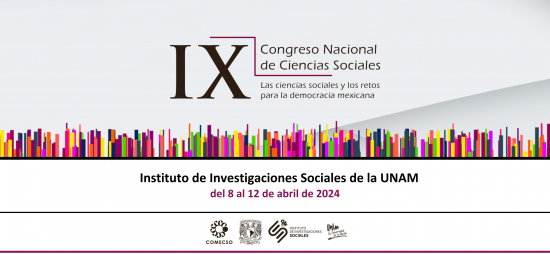Governance by Numbers and its Discontents
Governance by Numbers and its Discontents
29-30 June 2023, University College Dublin (UCD)
Workshop organizers: Lorenzo Cini, Roland Erne, and Bianca Föhrer
MSCF project COGONU (https://cordis.europa.eu/project/id/101028811)
ERC project European Unions (https://www.erc-europeanunions.eu/)
Algorithms are seen as an effective tool for managing workers. This governance by numbers- based mode of labour control allows companies to pursue two organizational goals at the same time, which had hitherto been seen as being mutually exclusive: (1) exercising vertical control of workers (2) without having to assume any social obligations towards them in turn. Put otherwise, algorithms provide employers with the capacity to control workers without having to enter a formal employee relationship with them.
This algorithms-based mode of labour governance mirrors the rise of a new management control regime by numerical benchmarks in relation to
- the management of subsidiaries by the headquarters of multinational corporations.
- the new public management of sub-units by the heads of public bodies, e.g., universities.
- the governance of member states by EU executives after the financial crisis of 2008.
In other words, the transformations occurring in labour control run in parallel with the changes occurring in the forms of governance at the societal level, moving from a model of government guided by law to a new one guided by numbers, where rules are enforced by performance indicators. This logic is indeed not only used by multinational corporations but also by political institutions. The key example is indeed the EU’s shift to a new economic governance (NEG) regime after the financial crisis that is designed to control national budgets and economic policies vertically by using key performance indicators without creating a federal political organization. Another example is the use of key performance indicators to assess research and teaching in todays’ universities.
The shift towards such governance by numbers regimes, however, may also provide unintended crystallization points for contentious countervailing collective action. In this respect, the mobilizations of food delivery workers are emblematic. The verticalization of power that is intrinsic to the dependency relationship between platforms and workers may render the political nature of such relationships more clearly visible to workers. If, on the one hand, such relationships of dependency do create a form of quasi-total control over workers, on the other hand, it also helps to single out the target of the conflict. This is a political element of the employment relationship that had partly become lost in the era of post-Fordist financialized capitalism. The use of an algorithm as a vertical form of organization of the labour process inside companies is said to facilitate the identification of the central locus of the control (and exploitation) that they experience and, consequently, this increases the potential for organizing collective action against it. The same could also be said in relation to the governance by numbers at the macro level, e.g., in relation to the EU’s NEG regime.
At first glance, this argument might appear counterintuitive; given the common assertion that algorithms de-personalize and obfuscate the nature of control in the labour process, making the managerial figure invisible, individualise workers and thus opposition difficult to organize. However, in a paradoxical sense, the de-personalized nature of algorithmic control might help workers to conceive of themselves as subjects subordinated to a collective labour process, as it reveals the general and uniformly arbitrary dynamics of operation of technological and abstract managerial devices used to control them. In this sense, the lack of regular interaction between management and platform workers under the platform architecture may not only trigger grievances, but also makes it more likely for them to escalate. It is obvious that we are faced with an ambivalent process here: the collective organization of workers can either emerge or not, it is not a necessary process. But it does not seem to be a coincidence that the various multinational platforms (Glovo, Deliveroo, Foodora) that operate through these algorithmic means of control are becoming the central targets of emerging worker mobilizations.
More generally, it has been noted that if digital platforms are those firms that control and use algorithms, then they will be the targets of mobilization as they are the new visible ‘bosses’ in platform capitalism. Therefore, contestation of governance by numbers in their own companies may also help us to better understand the challenges to this new form of governance elsewhere. The algorithms of platform companies are, as key performance indicators elsewhere, not politically neutral, but have resulted from power relations. Their mobilizations may transform into a broader political challenge for contemporary societies.
In this call for papers for our two-day workshop, we are selecting 16 contributions from both junior and established scholars that problematize the governance by numbers and its discontents at any level (private or public). Hence, we aim to stimulate discussions that are relevant for economic sociology, political economy, employment relations and HRM scholars, as well as for the future of social and democratic governance in times of artificial intelligence.
Keeping these broader issues in mind, we are especially interested in papers that shed new light on one or more of the following (non-exhaustive) list of topics:
- Labour control in times of algorithmic management: old wine in a new bottle?
- Algorithmic management and HRM: new and old challenges
- Exploring governance by numbers at the micro, macro level, or at both levels: threats and opportunities for social movements
- Contesting governance by numbers in various sectors: issues, goals, and forms of mobilization
- Towards a datafied society? Governance by numbers and the prospects for democracy
Workshop website:
https://www.erc-europeanunions.eu/workshop-governance-by-numbers-and-its-discontents/
List of invited speakers:
Maurizio Atzeni (Universidad Alberto Hurtado, Chile): Understanding Worker Mobilizations beyond Traditional Trade Unions in the Global Precarious Economy
Lorenzo Cini and Roland Erne (University College Dublin, Ireland): Governance by Numbers and its Discontents. From the Micro- to the Macro-Level, and Back
Sarrah Kassem (Universität Tübingen, Germany): Work and Alienation in the Platform Economy. A Critical Perspective
Valeria Pulignano (KU Leuven, Belgium): Platforms’ Labour Governance Strategies and Spaces for Workers’ Control within Distinctive Political Institutional Realms
Kurt Vandaele (European Trade Union Institute, Belgium): Are Platform Workers Willing to Unionise? Survey Evidence from 14 European Countries
Alex Wood (University of Bristol, United Kingdom): Platform Labour and Algorithmic Contestation: A New Research Agenda for Labour Studies
How to apply:
Propose a paper presentation by submitting a 500-word abstract and a 100-word bio for each author (incl. email address and affiliation) to bianca.foehrer@ucd.ie.
You are not required to submit a full paper for the workshop. Yet, make sure that your proposal clearly encompasses the following elements: (a) the issue to be discussed; (b) the methodology and the theoretical framework used; (c) the findings achieved.
Based on the contributions for our “Governance by Numbers & its Discontents” workshop, we will write a proposal for an open access book with a leading international academic publisher.
To ease the wider participation of junior scholars, we do not ask any workshop fee and we provide all participants with one-night accommodation and meals for the two days-event.
Submission deadline: 31 March 2023
We will confirm acceptance of workshop papers by 17 April 2023
Descargar
Te puede interesar

Publicaciones del COMECSO
comecso - Dic 04, 2024Este espacio reúne la gran mayoría de la producción editorial de nuestra asociación. A lo largo de casi cinco décadas,…

IX Encuentro Latinoamericano de Metodología de las Ciencias Sociales
Laura Gutiérrez - Dic 11, 2024IX Encuentro Latinoamericano de Metodología de las Ciencias Sociales Indisciplinar las ciencias sociales. Transformaciones y resistencias en las fronteras metodológicas…

Primer Congreso de Literatura Queer y Perspectivas de Género: “Decir el cuerpo situado”
Laura Gutiérrez - Dic 11, 2024La Universidad de Ciencias y Artes de Chiapas, el Centro de Estudios Superiores de México y Centroamérica a través de…

Postdoctoral Research Fellowships
Laura Gutiérrez - Dic 11, 2024University of California Alianza MX Postdoctoral Research Fellowships 2025 Pilot Program Deadline: March 31, 2025 The University of California Alianza…












